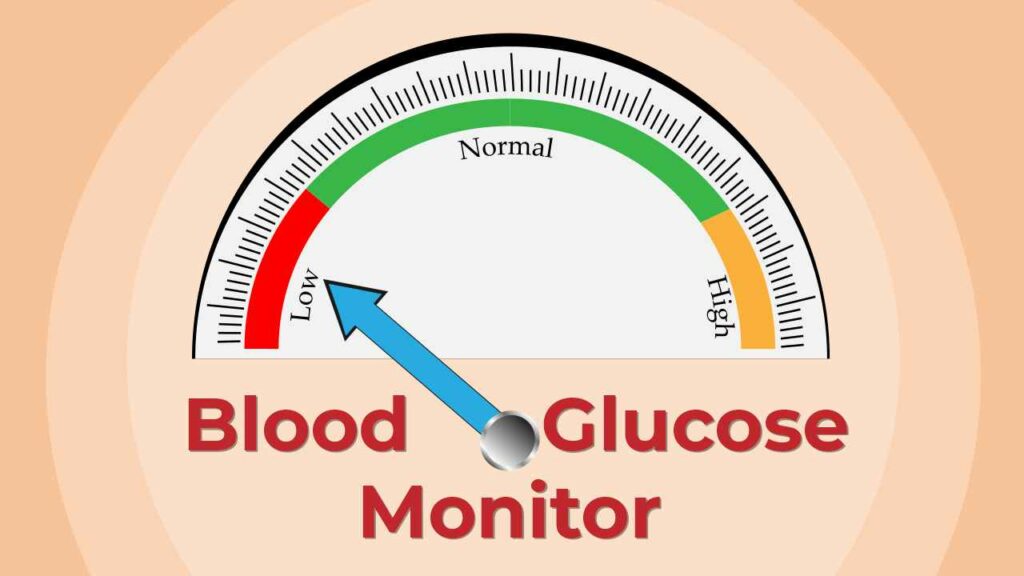Low blood sugar, also known as hypoglycemia, occurs when the glucose levels in your blood drop below the normal range. This condition can be caused by various factors, including excessive physical activity, skipping meals, or medication side effects. Managing low blood sugar is crucial for overall health, and understanding effective cures is essential. In this comprehensive guide, we will explore the causes, symptoms, and most importantly, the strategies to cure and prevent low blood sugar episodes.
Contents
Understanding Low Blood Sugar

Before delving into the cures, it’s essential to understand what low blood sugar is and how it affects the body. Glucose, derived from the food we eat, is the primary source of energy for our cells. When blood sugar levels drop too low, the body lacks the necessary fuel to function properly, leading to a range of symptoms such as dizziness, confusion, sweating, and, in severe cases, unconsciousness.
Causes of Low Blood Sugar:
- Medication Side Effects: Certain medications, especially those prescribed for diabetes, can cause blood sugar levels to drop. Insulin and oral diabetes medications are common culprits.
- Skipping Meals: Irregular eating patterns, especially skipping meals, can result in low blood sugar. Your body needs a consistent supply of glucose to maintain normal blood sugar levels.
- Excessive Physical Activity: Strenuous exercise without adequate food intake can deplete glucose stores and cause a drop in blood sugar levels.
- Alcohol Consumption: Excessive alcohol consumption can interfere with the body’s ability to regulate blood sugar, leading to hypoglycemia.
List of Low Blood Sugar Cure
Here’s a concise list of strategies for low blood sugar cure:
Immediate Sugar Intake
When faced with the symptoms of low blood sugar, acting swiftly is crucial to prevent the situation from worsening. Immediate sugar intake serves as a rapid and effective solution to elevate blood glucose levels and alleviate symptoms.
Why Immediate Action Matters: Low blood sugar, or hypoglycemia, can lead to a range of symptoms such as dizziness, confusion, irritability, sweating, and in severe cases, unconsciousness. Swift intervention is essential to bring blood sugar levels back to a safe range and prevent complications.
Fast-Acting Sugars: Consume sources of sugar that are quickly absorbed into the bloodstream. This includes glucose tablets, fruit juice, or regular soda. These options provide a rapid increase in blood glucose, offering a prompt solution to counteract the low blood sugar levels.
Complex Carbohydrates

In the realm of managing low blood sugar, the role of complex carbohydrates is pivotal. Unlike simple sugars that provide a quick but short-lived burst of energy, complex carbohydrates offer a sustained and steady release of glucose, providing a longer-lasting solution to stabilize blood sugar levels.
Understanding Complex Carbohydrates: Complex carbohydrates are composed of larger, more intricate structures than simple sugars. Found in foods such as whole grains, legumes, fruits, and vegetables, they take longer to break down during digestion. This slow breakdown results in a gradual release of glucose into the bloodstream, preventing rapid spikes and crashes in blood sugar levels.
Whole Grains: Incorporating whole grains into the diet is a fundamental aspect of utilizing complex carbohydrates for blood sugar management. Options such as brown rice, quinoa, whole wheat, and oats provide a rich source of fiber, vitamins, and minerals, in addition to a sustained release of glucose.
Fruits and Vegetables: While fruits contain natural sugars, they also provide fiber and essential nutrients. Vegetables, especially those with a low glycemic index, contribute to stable blood sugar levels. Berries, apples, and non-starchy vegetables like broccoli and leafy greens are excellent choices.
Balanced Meals
Creating balanced meals is a fundamental strategy for individuals seeking to manage and prevent low blood sugar episodes. These meals, carefully composed of a combination of carbohydrates, proteins, and fats, contribute to stable blood sugar levels, sustained energy, and overall well-being.
The Components of Balanced Meals:
- Carbohydrates: Provide the primary source of energy. Opt for complex carbohydrates like whole grains, fruits, and vegetables to ensure a gradual release of glucose.
- Proteins: Contribute to satiety and help stabilize blood sugar levels. Lean proteins such as poultry, fish, tofu, and legumes are excellent choices.
- Fats: Essential for overall health, healthy fats can be found in avocados, nuts, seeds, olive oil, and fatty fish. They slow down digestion and the absorption of carbohydrates, preventing rapid spikes in blood sugar.
Consistent Meal Schedule
Maintaining a consistent meal schedule is a powerful and straightforward approach to managing low blood sugar. This strategy involves spacing meals and snacks evenly throughout the day, ensuring a steady supply of nutrients, and preventing prolonged periods without nourishment.
Key Principles of a Consistent Meal Schedule:
- Regularity in Meal Timing: Establish set times for breakfast, lunch, dinner, and snacks. Consistency in the timing of meals helps regulate blood sugar levels and supports the body’s natural rhythm.
- Avoiding Prolonged Gaps: Aim to eat every 3-4 hours to prevent extended periods without food. This approach helps maintain a constant influx of glucose, preventing the body from dipping into low blood sugar territory.
- Balanced Meals and Snacks: Each meal and snack should include a balance of carbohydrates, proteins, and fats. This combination promotes sustained energy release and stable blood sugar levels throughout the day.
- Hydration Habits: Stay hydrated by consuming water throughout the day. Proper hydration supports digestion and overall well-being.
Medication Adjustment

For individuals managing low blood sugar, especially those on medications such as insulin or oral hypoglycemic agents, fine-tuning medication regimens can be a crucial aspect of effective management. Collaborating closely with healthcare providers to make necessary adjustments ensures a delicate balance between achieving glycemic control and minimizing the risk of hypoglycemia.
Indications for Medication Adjustment:
- Frequent Hypoglycemic Episodes: If an individual experiences recurrent episodes of low blood sugar, it may indicate that the current medication dosage or regimen needs adjustment.
- Changes in Lifestyle or Activity Levels: Lifestyle modifications, such as increased physical activity or changes in dietary habits, can impact blood sugar levels. Adjustments to medication may be necessary to accommodate these changes.
- Weight Changes: Significant changes in body weight can affect insulin sensitivity and requirements. Adjustments to medication dosages may be needed to align with these changes.
- Medical Conditions or Interactions: The presence of other medical conditions or interactions with other medications can influence how the body responds to anti-diabetic medications. Regular assessments and adjustments may be necessary.
Emergency Glucagon Kit
In cases of severe hypoglycemia, an emergency glucagon kit can be a critical intervention. Glucagon is a hormone that quickly raises blood sugar levels, providing a swift and potentially life-saving response to low blood sugar episodes. Understanding the importance of having and using an emergency glucagon kit is crucial for individuals at risk of severe hypoglycemia.
Understanding Glucagon:
- Role in Blood Sugar Regulation: Glucagon is a hormone produced by the pancreas. Its primary function is to raise blood sugar levels by promoting the release of glucose stored in the liver.
- Counteracting Insulin: While insulin lowers blood sugar, glucagon counteracts its effects, preventing blood sugar levels from dropping too low.
Indications for Emergency Glucagon Use:
- Severe Hypoglycemia: Emergency glucagon is typically administered when an individual with diabetes experiences severe hypoglycemia and is unable to consume oral carbohydrates.
- Unconsciousness or Inability to Swallow: If the person is unconscious or unable to swallow, administering glucagon can rapidly elevate blood sugar levels.
Healthy Snacks
Healthy snacks play a pivotal role in managing and preventing low blood sugar episodes. These snacks, thoughtfully chosen and well-balanced, provide a combination of carbohydrates, proteins, and healthy fats to stabilize blood sugar levels and sustain energy. Here are some nourishing options to consider:
1. Whole Grain Crackers with Cheese:
- Why: Whole grain crackers offer complex carbohydrates, and pairing them with cheese adds protein and healthy fats for a balanced snack.
2. Greek Yogurt with Berries:
- Why: Greek yogurt is rich in protein, and berries provide natural sugars and fiber, offering a satisfying and nutritious combination.
3. Apple Slices with Peanut Butter:
- Why: Apples offer natural sugars and fiber, while peanut butter adds protein and healthy fats for a well-rounded snack.
4. Trail Mix with Nuts and Dried Fruit:
- Why: Nuts contribute healthy fats and protein, while dried fruits provide natural sugars and a quick source of energy.
5. Hummus with Raw Vegetables:
- Why: Hummus is a source of plant-based protein and healthy fats. Pairing it with raw vegetables like carrots and cucumber adds fiber and nutrients.
6. Cottage Cheese with Pineapple:
- Why: Cottage cheese is a protein-rich option, and pineapple provides natural sugars. This combination balances protein and carbohydrates.
Hydration

While the connection between hydration and blood sugar management may not be immediately apparent, maintaining adequate hydration is a crucial aspect of overall health and can significantly influence blood sugar levels. Here’s why staying hydrated is an essential component of managing low blood sugar:
Water and Digestion:
- How It Helps: Water aids in the digestion and absorption of nutrients, including carbohydrates. Proper digestion supports a gradual release of glucose into the bloodstream, preventing rapid spikes or crashes in blood sugar levels.
Preventing Dehydration-Induced Spikes:
- How It Helps: Dehydration can lead to higher concentrations of glucose in the blood. By staying adequately hydrated, individuals can help prevent dehydration-related spikes in blood sugar.
Improved Insulin Sensitivity:
- How It Helps: Proper hydration supports overall metabolic function, contributing to improved insulin sensitivity. When cells are hydrated, they can more efficiently respond to insulin and utilize glucose for energy.
Lifestyle Modifications
In the pursuit of managing and preventing low blood sugar episodes, embracing lifestyle modifications is a comprehensive and empowering approach. These modifications encompass various aspects of daily life, including diet, physical activity, stress management, and sleep. Here’s how incorporating positive lifestyle changes can be a fundamental cure for low blood sugar:
Regular Exercise:
- How It Helps: Engaging in regular physical activity enhances insulin sensitivity, allowing cells to use glucose more effectively. It also helps regulate blood sugar levels and promotes overall cardiovascular health.
Stress Management:
- How It Helps: Chronic stress can contribute to blood sugar imbalances. Incorporating stress-reduction techniques, such as meditation, deep breathing, or yoga, can positively impact blood sugar levels.
Adequate Sleep:
- How It Helps: Quality sleep is essential for overall health and plays a role in maintaining balanced blood sugar levels. Aim for 7-9 hours of sleep per night.
Limiting Alcohol Intake:
- How It Helps: Alcohol can interfere with blood sugar regulation. Limiting alcohol intake and consuming it with food can help mitigate its impact on blood sugar levels.
Avoiding Tobacco:
- How It Helps: Smoking can contribute to insulin resistance and negatively affect overall health. Quitting smoking is a significant step in improving blood sugar control.
Weight Management:
- How It Helps: Maintaining a healthy weight contributes to better insulin sensitivity and reduces the risk of blood sugar imbalances.
Conclusion
Managing and curing low blood sugar involves a combination of immediate actions and long-term strategies. Understanding the causes, symptoms, and effective remedies empowers individuals to take control of their health. It’s important to work closely with healthcare professionals to develop a personalized plan for preventing and managing low blood sugar, ensuring a healthier and more stable life.
Do you want to get rid of diabetes? Join our online diabetes treatment program and reverse Diabetes naturally through lifestyle changes such as a Personalized Diet plan, Exercise, Yoga, dieticians, and health coaches.

